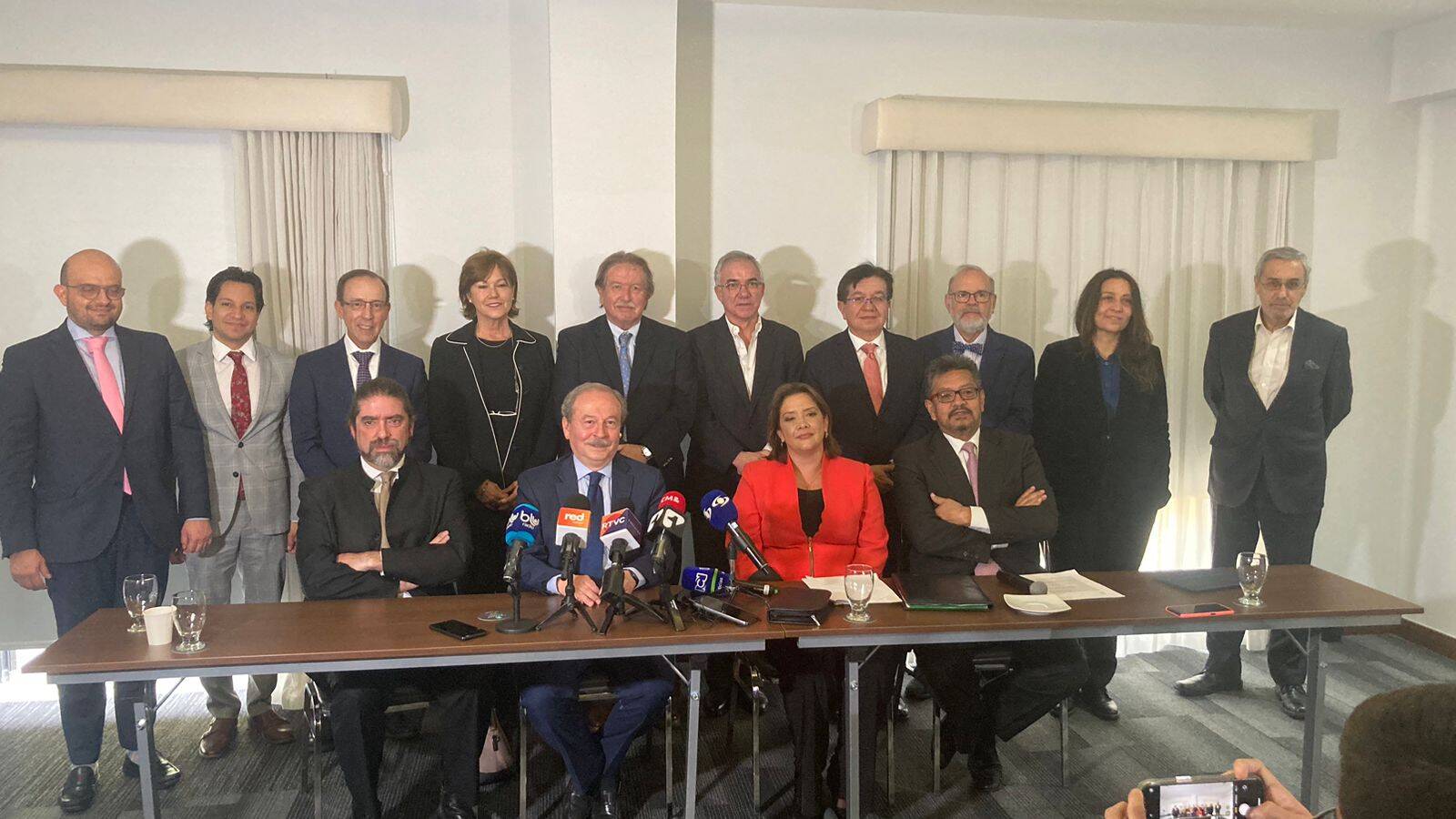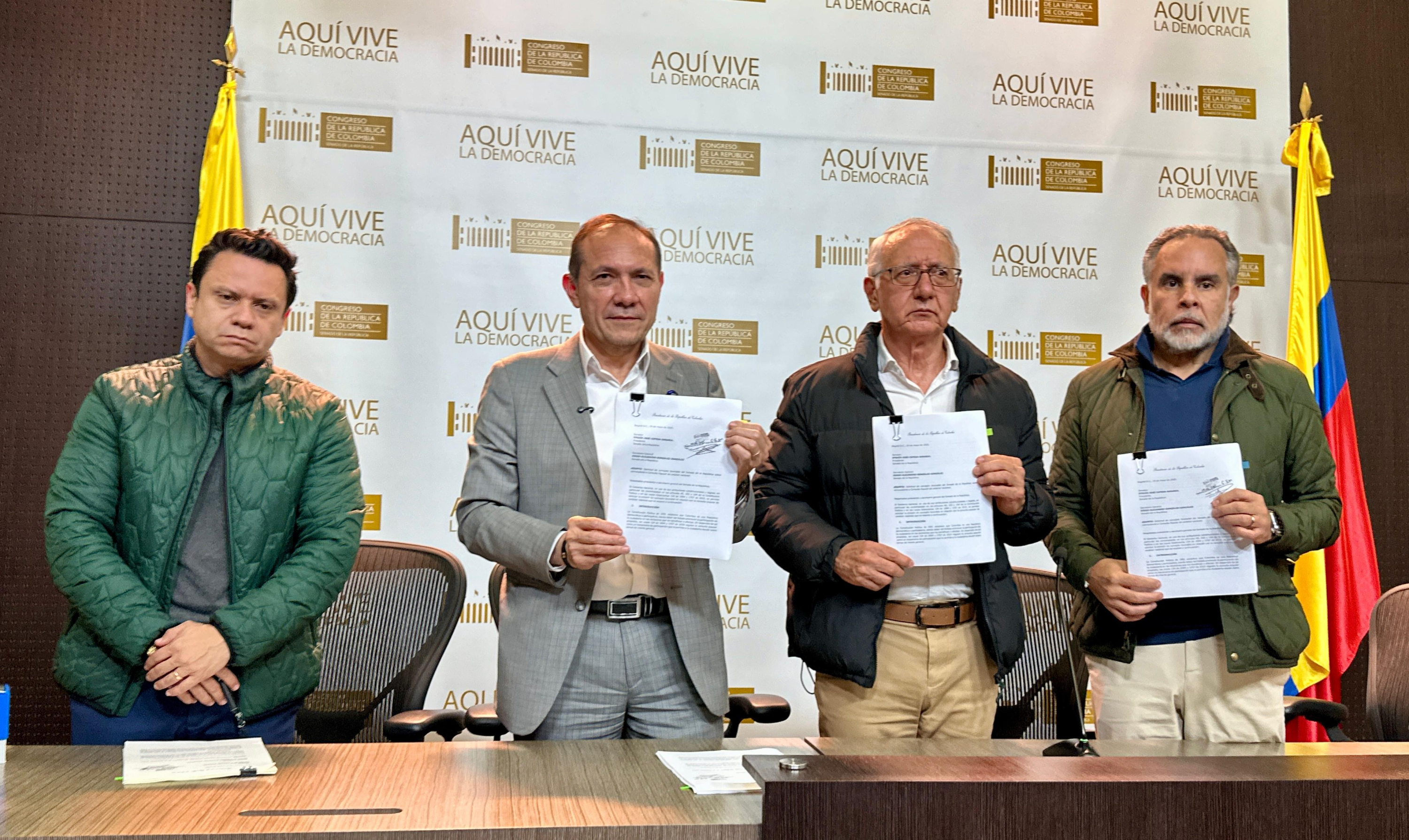Unnecessary and without legal justification: this is how experts describe the health-related questions in the consultation.

The referendum proposal submitted by the Government to Congress includes four new questions. Its objective is to stimulate debate on the changes the Ministry of Health seeks to introduce to the system through its reform bill. However, some experts consider these proposals unnecessary and unjustified, since, from a legal perspective and in accordance with current regulations, the Government has the tools to make such modifications. In fact, in some cases, these changes are already being implemented.
Among the questions posed by the Government are the following: Do you agree that the National Government should purchase or produce the necessary medications to ensure their complete and timely delivery to patients? Do you agree that EPSs should cease to be financial intermediaries and become health managers, and that ADRES should directly pay hospitals and clinics?
The government also proposes two additional questions: Do you agree that Colombians should be guaranteed a primary health care model, with a preventive and remedial approach, that includes the expansion of necessary specialized services, both public and private, or a combination of both? Do you agree with establishing a special labor regime that guarantees healthcare employees and workers formal employment, labor rights, and fair wages?

New questions from the referendum Photo: Screenshot
“The initiative to involve the health sector in a referendum is perceived as an attempt to exploit it for electoral purposes. The questions included are polarizing because they appeal to emotional rather than informed decisions; they are misleading because they present apparent solutions as if they were viable and immediately applicable; and they are incomplete because they do not present functional or sustainable models. With this referendum, the National Government is not proposing a solution to the financial crisis in the health system; and what's worse, it is worsening the situation by distracting and confusing the population about its true causes and possible solutions,” states a letter published this week and signed by an interdisciplinary group of former ministers, former vice ministers, experts, and health rights advocates.
The signatories of the document include former officials such as Augusto Galán Sarmiento, Alejandro Gaviria, Jaime Arias, Gabriel Riveros, Beatriz Londoño, Eduardo Alvarado, Fernando Ruiz, Blanca Cajigas, Diana Cárdenas, Mauricio Santamaría, and María Andrea Godoy, among others.

An interdisciplinary group of former ministers, former vice ministers, and health rights advocates. Photo: Private archive
In their view, the health system is facing a crisis of governance, financing, and legitimacy, without the government having presented clear proposals for a solution. Additionally, they warn that functional structures are being dismantled without building real capacity to replace them, which is deteriorating the institutions' technical capacity.
Cristina Isaza, executive director of the Plural Citizen Participation Group, shares a similar position. In an interview with EL TIEMPO, she pointed out that all of these proposals are already contemplated in current regulations or can be implemented through ordinary regulations. For example, she explains, the State can have Adres pay directly, something that already occurs in the intervened EPSs. It can also strengthen primary care, as is theoretically being done through the Basic Health Teams, which operate in some regions of the country.
" The government doesn't need a referendum to resolve problems that, for the most part, relate to management, budget execution, and technical leadership. The system's crisis lies not in the absence of regulations, but in the ideological use that has been made of it, the deliberate financial suffocation of key actors, and the lack of institutional coordination. The government has all the tools to act, but it hasn't. The crisis isn't solved by asking people if they want better health; that's obvious! This referendum isn't intended to solve problems, but rather to score political points, manipulate public opinion, and divert attention from the mistakes made. They want to campaign on the ashes of the system they themselves have destroyed, by manipulating public opinion," Isaza pointed out.

Antonio Sanguino, Guillermo Jaramillo, and Armando Benedetti at the filing of the referendum. Photo: Ministry of Labor
For his part, Ramón Abel Castaño, a physician with a Ph.D. in Public Health and Policy, was emphatic in pointing out that many of these issues are highly technical, which prevents the general population from having an in-depth discussion about what they are actually voting on. “All the government is doing is formulating questions in language appealing to the general public, and then claiming they are saving the people. It's a purely populist intention. I have no doubt about it, because all these changes can be made within the legal framework of the system,” Castaño emphasized.
Finally, Denis Silva, spokesperson for the Pacientes Colombia organization, called the proposal a "mockery" in the face of the health system crisis. "The government is including health care in the referendum as a political and partisan act, not to resolve the crisis. It doesn't want Colombians to overcome the crisis it itself created for one simple reason: it creates noise and pressure to approve its reform. In short, the government lacks the will to resolve the problem it created," Silva stated.
Environment and Health Journalist
eltiempo





%3Aformat(jpg)%3Aquality(99)%3Awatermark(f.elconfidencial.com%2Ffile%2Fa73%2Ff85%2Fd17%2Fa73f85d17f0b2300eddff0d114d4ab10.png%2C0%2C275%2C1)%2Ff.elconfidencial.com%2Foriginal%2F121%2Fd44%2Fc43%2F121d44c431afc2d16432ffcd0efba6e9.jpg&w=3840&q=100)